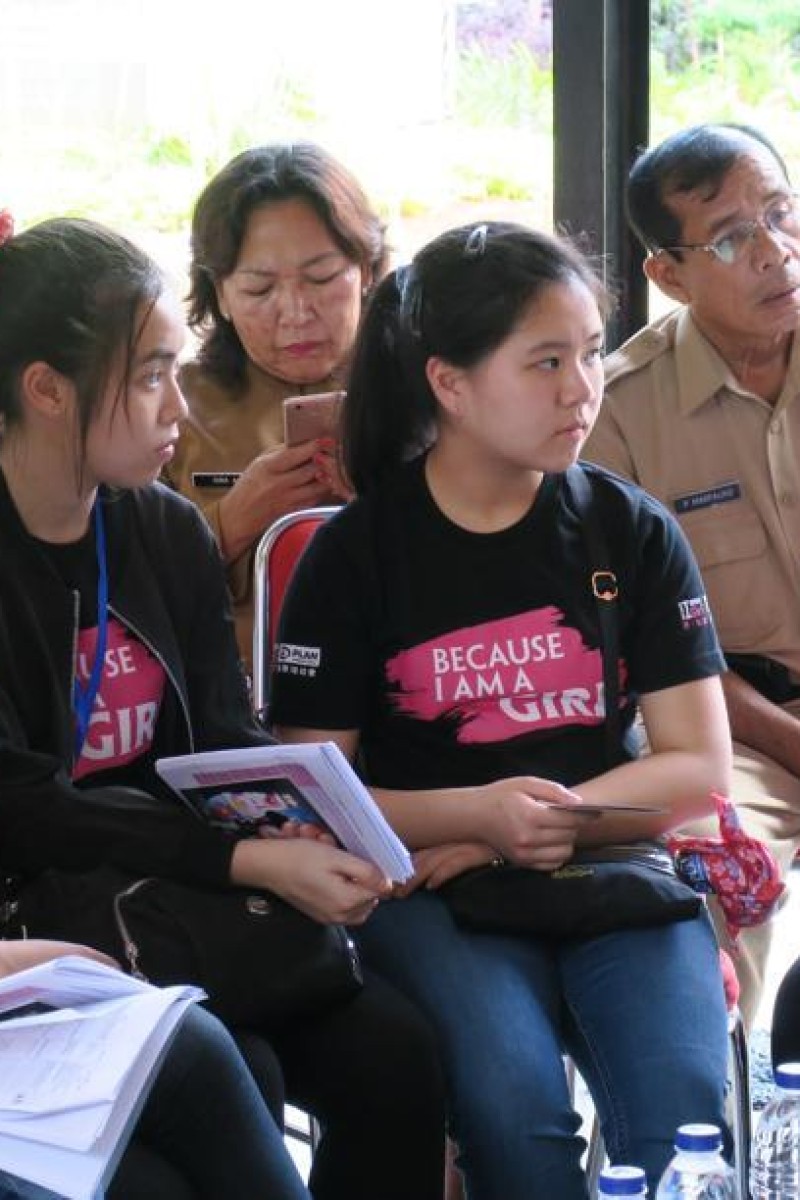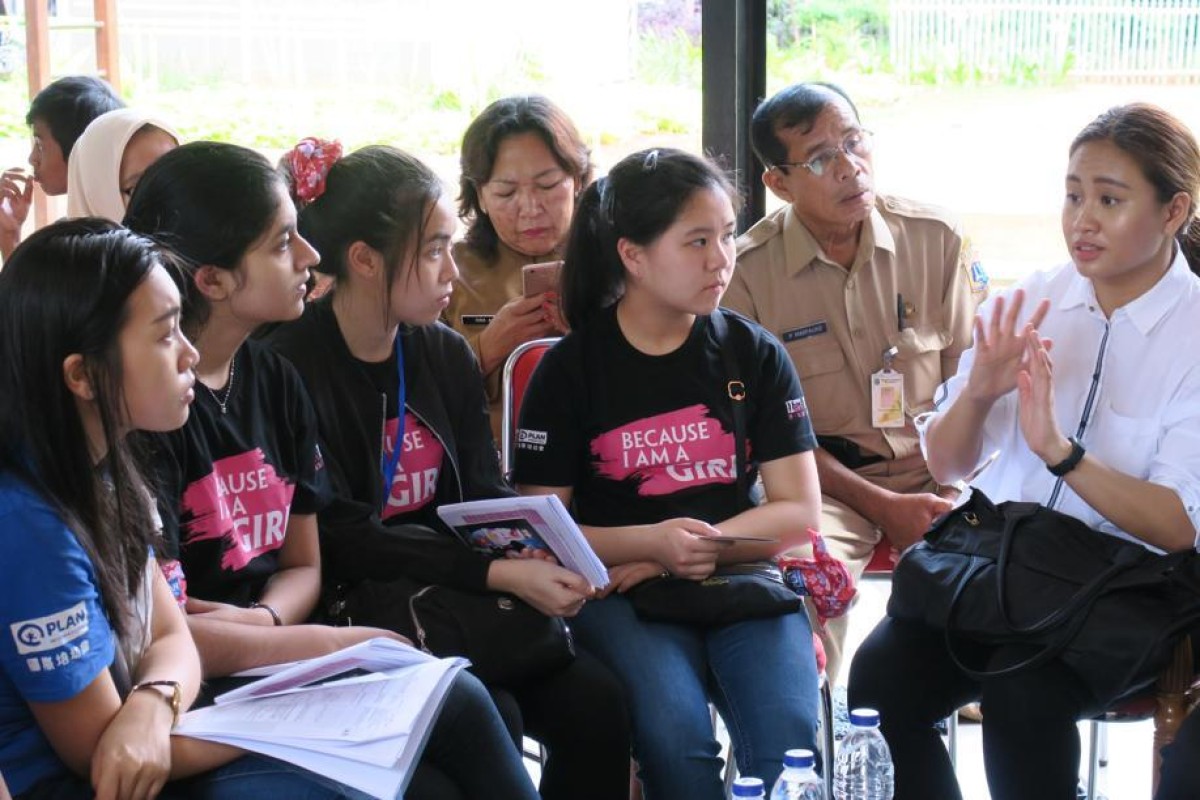
- After a trip to Indonesia, two women's rights advocates from Hong Kong learned how much tougher life is for girls overseas
- Still, the city has a long way to go when it comes to fairness and safety for all genders
 The Plan International event pushed participants to discuss tough topics.
The Plan International event pushed participants to discuss tough topics.Asra Sainju and Janice Lee said that although things are far from perfect, girls have it pretty good in Hong Kong.
After winning separate awards at a youth conference, the two were flown to Indonesia, where they learned just how difficult life can be for some girls – particularly in less developed countries.
“My passion for women’s rights stems from the fact that I go to an all-girls’ school as an ethnic minority,” explained Asra, who attends Good Hope School. She won the Best Presenter award at Plan International Hong Kong Youth Conference 2017 – Justice: Because I am a Girl in September. “But after learning about what girls go through in Indonesia, South Sudan, and even my home country, Nepal, I feel very fortunate to have grown up in Hong Kong.”
HKU hosts HeForShe x #MeToo workshop to raise awareness about sexual harassment in Hong Kong
Still, the 15-year-old recognised that the city has many problems. “The wage gap [between men and women] is still a real issue in Hong Kong and there is still a stigma and generalisation of what women can do in certain companies, and why they’re [regarded as] lower than men in certain areas, particularly when it comes to Stem subjects,” Asra said.
“I have friends and teachers who are interested in Stem subjects and have faced discrimination in the workplace, just because they were women.”
Still, this was nothing compared to the problems women face in Indonesia.
“In [Indonesian] culture, they believe the first step for women is to get married, so girls often get married at 14 years old and have kids right away. But these marriages often don’t last so they get divorced, which affects the children and they try to find love somewhere else, and it just creates a vicious cycle.”
Tory Burch talks about #EmbraceAmbition, sexism, female empowerment, and social responsibility
Janice, a student from St Stephen’s Girls’ College, thinks Hong Kong has a long way to go. “There is a problem of sexual harassment on public transport and in the workplace,” she said. “The public is not fully aware of this, and a lot of victims don’t speak out for fear of being embarrassed or criticised.”
The 16-year-old’s team were named the Best Presentation Team at the conference. She has led projects with her classmates where she handed out leaflets in Mong Kok, and set up an Instagram page to highlight misconceptions around the definition of sexual harassment.
“The most important thing is to enhance people’s knowledge on the subject. It is the only way to change their mindsets.”
Asra agrees that education and awareness is the way forward. “The stigma around women needs to be removed for there to be any progress. It’s difficult to just teach people how to think, when they’ve been thinking incorrectly their whole lives. So spreading awareness, letting everyone know what women are capable of, I think is the best way forward.”
Opinion: Hong Kong, stop telling women to dress ‘feminine’, you're being sexist
Both girls plan to continue educating people on, and fighting for, gender equality. Asra hopes to take on more of a research role and work for charities such as Plan International. Janice hopes to become a lawyer one day so she can fight for gender equality.
“Many people believe it takes a lot of money to hire a lawyer to try and punish a sexual offender,” Janice said. “I want to join the Legal Aid Department and help fight for underprivileged victims [and] speak out
for their rights.”